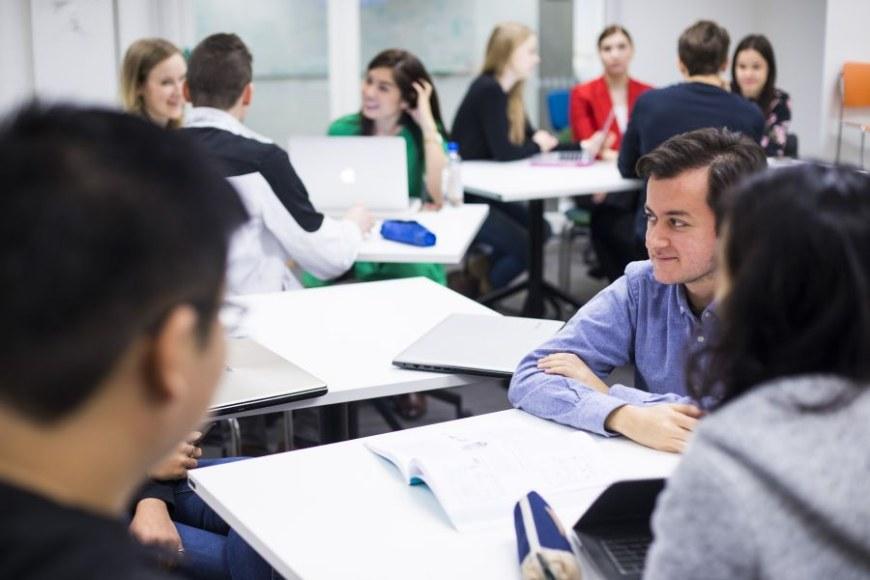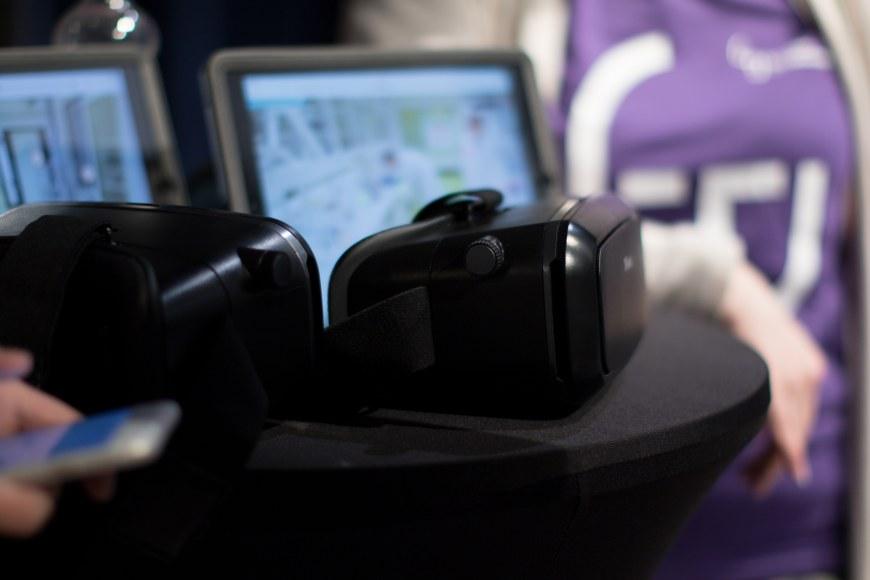
Doctoral Programme of Humans and Technologies
Type
Planned duration
Extent of studies
The aim of Doctoral Programme of Humans and Technologies (DPHAT) is to educate researchers who study the relationships between people, knowledge and technology. This broad field often requires knowledge and expertise in areas ranging from computer science and information studies to human sciences, such as psychology and sociology.
Doctoral Programme of Humans and Technologies prepares students for challenging research, R&D and specialist careers relating to human-driven approaches to technology. The field has a strong multidisciplinary dimension and it requires an in-depth understanding of a broad range of research methodologies and approaches.
There are four research fields in the programme:
Human-Technology Interaction
Doctoral research in Human-Technology Interaction can address a variety of perspectives related to novel technology-mediated systems and applications that shape people’s everyday life and work. This research field addresses topics such as:
- Novel forms of human-technology interaction, including multimodal and multisensory interaction
- Interaction and applications on new technology platforms such as Virtual Reality, social robots and autonomous vehicles
- Human-Centered aspects of computing systems and Artificial Intelligence
- User experience and emotions in information technology systems
- Societal impact, accessibility, and ethics of digital technology
Information Studies
Doctoral research in Information Studies addresses four areas. The student becomes an expert in either information practices, information management, information retrieval, or learning technologies. Those who complete the degree are employed, depending on their selected area, in libraries, archives or other information-intensive public sector or business organisations. Potential research themes include:
- Information practices of individuals and organizations
- Information searching and retrieval
- Archives and registries in contemporary society and the future
- Educational technologies
- Information literacy
- Library studies and reading studies
- Knowledge management
Games & Gamification
Doctoral research in the Games and Gamification addresses the multifaceted challenges related to society, ecology, economy, well-being, culture, literacy, and technology as well as other areas of human-game/technology practice. Through the design and research of games, gamification, and game-related technologies, from several academic approaches, the research seeks to address the “wicked problems” facing humanity.
The research topics include but are not limited to:
- Gamification in application domains such as Education: e.g., serious games, game-based learning; Media: e.g., esports, social media, gamification in journalism; Commerce: e.g., business models, gamification in marketing; Work: e.g., gameful work, gamification in leadership; Health: e.g., quantified self, gamification for health and well-being
- Gamification for societal phenomena such as environment/climate, culture, governance: e.g., human-forest interaction, climate-change engagement, democracy, participation, justice, urban planning, smart and playable cities
- Gamification design principles and methods, designing gamification artefacts, playful and speculative design
- Critical approach to gamification: e.g., detrimental effects of gamification, extrinsic control, and de-gamification
Application rounds for the research fields mentioned above (Human-Technology Interaction, Information Studies and Games & Gamification) in the academic year 2023-2024
- Application round 1 August 2023 – 1 September 2023, 15:00 Finnish time UTC +3). Results: 29 September 2023 and study right starts 2 October 2023.
- Application round 2 September 2023 – 2 November 2023, 15:00 Finnish time UTC +2). Results: 30 November 2023 and study right starts 1 December 2023.
- Application round 3 November 2023– 1 February 2024, 15:00 Finnish time (UTC+2). Results: 29 February 2024 and study right starts 1 March 2024.
- Application round 2 February 2024 – 30 April 2024, 15:00 Finnish time (UTC+3). Results: 9 June 2024 and study right starts 1 August 2024.
Please note! The application round ends at 15.00 Finnish time.
Convergence of Humans and Machines
Doctoral research in Convergence of Humans and Machines field addresses eight areas. The student becomes an expert in either affective computing, gamification, virtualization, cybernetics, ubiquitous connectivity, dispersed computing, AI & machine learning, or robotics & machine perception. Convergence is the trailblazing multidisciplinary doctoral field, which aims at bringing together expertise of natural sciences & engineering (ENG) and social sciences & humanities (SSH) in multidisciplinary union. Each student is supervised by two senior supervisors of from different fields.
Note: the application period for Convergence research field was open only in 2023.
Curriculum
Detailed information on the content and structure of the studies is included in the curriculum.
Become a student
Learn more about the studies, admissions, and eligibility criteria on Studyinfo. In addition, applications are submitted via the Studyinfo.fi service.
Carefully read through the admissions requirements in Studyinfo.fi before applying. For additional questions on applying, application documents and application process, please contact our Admissions office. For questions regarding the content of the programme, please contact itc.doc.tau(a)tuni.fi.
To find a responsible supervisor, start by contacting one of our professors. Once you've found a responsible supervisor, consider together other possible supervisors or members of a follow-up group.

